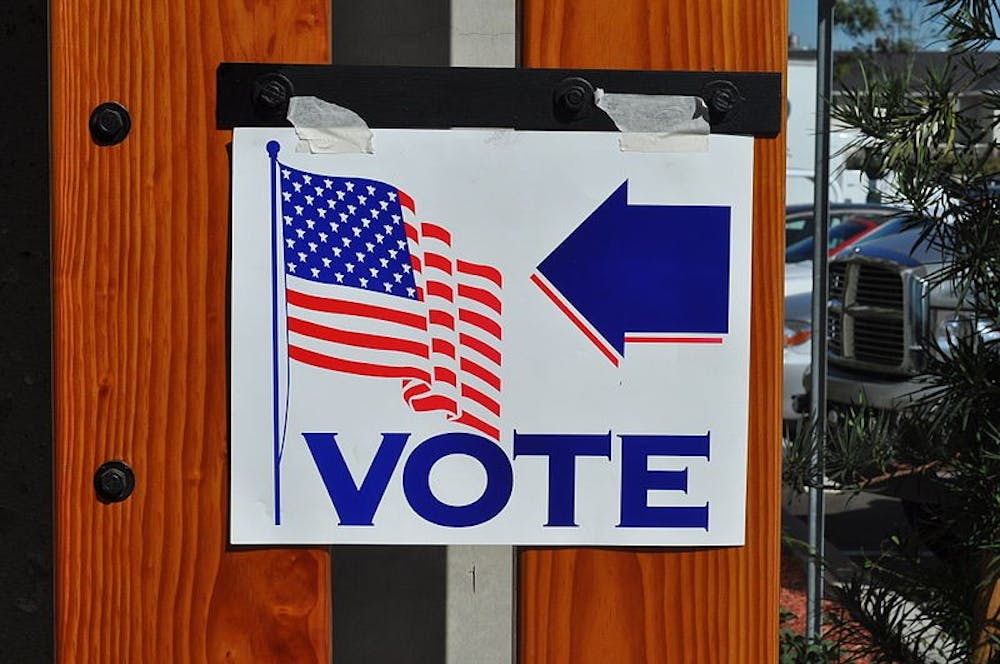By Baris Inan and Nihat Cem Inan |
In most of the general U.S. presidential elections, although a candidate from any party or an independent candidate could run for presidency, the candidates representing the Democratic and Republican Parties typically receive the majority of the votes. However, due to the unique progression of the 2016 primaries, the scenario this year could take a very interesting turn. Specifically, a candidate that is neither a Democrat nor a Republican could become the next president of the United States.
Let’s examine the possible outcomes of the 2016 primaries. At this point in the primaries there are four major candidates remaining: Ted Cruz, Hillary Clinton, Bernie Sanders and Donald Trump. Cruz and Trump are running through the Republican Party and Hillary and Sanders are the candidates of the Democratic Party. One may assume that the general election will again come down to a Democrat running against a Republican. However, there is a possibility that this may not be the case.
Examining the political history of Sanders and Trump, Sanders recently joined the Democratic Party in 2015 after serving years in the Senate (since 2007) and House (from 1991 – 2007) as an independent. Donald Trump announced his candidacy for the Republican Party on June 16th, 2015. Previously, Trump had helped and supported various Democratic and Republican candidates and so he could also be considered an independent. Therefore, although Trump and Sanders are currently running through the Republican and Democratic Parties respectively, they are both “formerly independent” candidates.
Currently, some Republicans dislike Trump and want to exclude him from the party. However, they have been unsuccessful so far because Trump is ahead of the other candidates. Similarly, Bernie Sanders is an outsider to the Democratic Party because of his Democratic Socialist views. Despite his views, he is currently tailing Hillary Clinton by a few hundred delegates.
A unique scenario could occur if Sanders and Trump lose the primaries by a narrow margin. Under these circumstances, Trump would likely not want to give up his chances in the general election. Indeed, on March 29th,, 2016, Donald Trump told Anderson Cooper of CNN that if he is not the nominee he will not keep his promise of remaining loyal to the Republican Party regardless of the primary outcomes. This means that Trump would be running as an independent.
On the Democratic Party side, there are loyal supporters of Bernie Sanders that would not vote for Hillary Clinton if she wins the nomination. A group that includes millennials and independents would still want Bernie Sanders to run for president even if he is not the Democratic nominee. For this reason, it is possible he won’t quit and will instead continue his bid as an independent. This means, if Cruz, Hillary and Trump compete for the general election, Bernie may decide to run as another independent.
The result is one where there is a US presidential election with four major candidates! Wow! Wouldn’t this be a very interesting election? Has this ever happened in US history? In 1860 there were also four major US presidential candidates: Abraham Lincoln from the Republican Party, John Breckinridge representing the Southern Democratic Party, John Bell from the Constitutional Union Party and Stephen Douglas as the candidate of the Democratic Party. Abraham Lincoln won the election and became president. However, due to Lincoln’s anti-
slavery views, the South seceded from the union and chose Jefferson Davis as their president and this resulted in the Civil War.
The possibility of both Sanders and Trump running as independent candidates this year seems to be financially probable as well. Due to his financial wealth, Trump could continue to self-fund his campaign during the general election. Sanders too could continue to support his campaign through donations from his loyal supporters.
One may also wonder whether Hillary Clinton would run as an independent if Bernie Sanders were to become the nominee. This possibility appears unlikely since the Clintons are traditionally connected and loyal to the Democratic Party. Would Ted Cruz run as an independent? The possibility again appears unlikely because Cruz is loyal to the Republican Party. But who knows! If Trump receives the nomination, it is possible that Cruz or someone else will be recruited by Republicans who are unhappy to see Trump as the nominee. The chance still exists for both Hillary and Cruz since they have many supporters. Many Democrats are split between Sanders and Hillary, and many Republicans are split between Trump and Cruz. If all of these candidates were to run, this will be a general election with four major candidates! It will for sure be one to be remembered by future generations.
We acknowledge comments and feedback provided by Gary Malecha, political science professor at University of Portland.
Baris Inan graduated from University of Portland at the end of Fall 2015 with a degree in Electrical Engineering and a Minor in Spanish. He can be reached at inan13@up.edu.
Nihat Cem Inan graduated from University of Portland at the end of Fall 2015 with a degree in Electrical Engineering and a Major in Music. He can be reached at inan16@up.edu.








